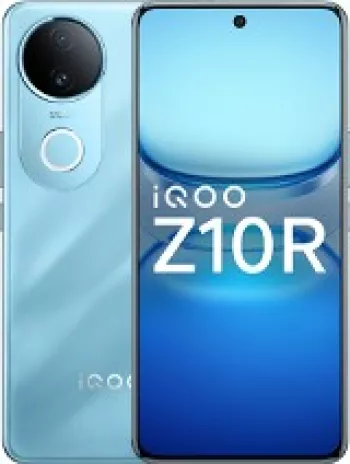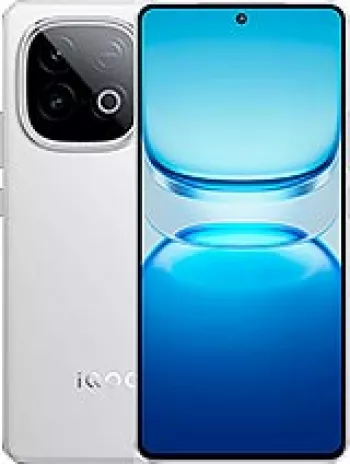
Overview of vivo Y28
The vivo Y28, launched in December 2014, is a smartphone that aimed to provide a balanced mix of functionality and affordability. Being a product of its time, it features specifications that suited the typical smartphone user's needs back then. It has since been discontinued but remains a noteworthy device for its strategic placement in the mid-range smartphone market during its release period.
Design and Build
The design of the vivo Y28 aligns with the trends in 2014, sporting a compact and ergonomic build measuring 137.4 x 68.6 x 9.8 mm and weighing 156 grams. The plastic body, typical for mid-range phones of that era, offers a comfortable grip. The front panel is dominated by a 4.7-inch display, with relatively thick bezels by today's standards, giving it a screen-to-body ratio of approximately 68.1%. The phone uses a Micro-SIM format, another characteristic feature of phones from that period.
Display
The vivo Y28 features a 4.7-inch IPS LCD screen, offering a resolution of 540 x 960 pixels. With a pixel density of about 216 ppi, the display is adequate for daily use, providing decent color reproduction and viewing angles. The choice of IPS LCD technology ensures that the display remains vibrant even in direct sunlight, though it lags behind the high-definition technologies available in later models.
Performance
Under the hood, the vivo Y28 is powered by the Mediatek MT6582 chipset built on a 28 nm process. The quad-core 1.3 GHz Cortex-A7 CPU, coupled with the Mali-400MP2 GPU, provides competent performance for basic tasks and lightweight applications. The device comes with 1GB of RAM, which fits the requirements of the Android 4.2.2 (Jelly Bean) OS it runs. However, multitasking beyond basic applications is limited due to the relatively small RAM capacity by modern standards.
Storage
Storage capacity on the vivo Y28 is 8GB of internal memory. Although seemingly limited, it supports expansion via a dedicated microSDXC card slot, allowing users to increase storage capacity for media, applications, and other data. This feature would have significantly extended the utility of the device for users with higher storage demands.
Camera Capabilities
The vivo Y28 is equipped with an 8MP primary camera with autofocus and an LED flash, which was considered decent at the time for a mid-range device. It supports 1080p@30fps video recording, which allows for acceptable video quality. The front-facing camera features a 5MP sensor, suitable for video calls and basic selfies.
Battery Life
The device is powered by a removable 2100 mAh battery. This capacity supports up to 430 hours on standby for both 2G and 3G networks, and offers talk times of up to 14 hours on 2G and up to 13 hours on 3G. Music play can go up to 32 hours, catering well to consumers who use their devices for media consumption.
Network and Connectivity
In terms of connectivity, the vivo Y28 supports GSM and HSPA technologies, with 2G and 3G bands supported. The data transfer speeds reach up to HSPA 21.1/5.76 Mbps, which was relatively standard at that time. The device is also equipped with Wi-Fi 802.11 b/g/n and Bluetooth 4.0 (with A2DP and EDR), allowing for seamless connectivity across various wireless networks and devices. Despite the lack of features like NFC and modern USB standards, it still provides an FM radio, a feature cherished by many users for its offline capabilities.
Sound and Multimedia
The vivo Y28 comes with a loudspeaker for media playback and a 3.5mm headphone jack, which remains a beloved feature for many users who prefer wired earphones. The presence of an FM radio adds to its multimedia capabilities, allowing users to access broadcast media without the need for internet connectivity.
Sensors and Additional Features
This device is equipped with basic sensors, including an accelerometer, proximity sensor, and compass. These sensors contribute to functionalities such as screen rotation, basic navigation, and automatic screen darkening during calls, enhancing user experience by providing intuitive controls and interactions.
Conclusion
The vivo Y28, available in white and priced around 100 EUR upon release, stands as a testament to the state of smartphone technology as of 2014. It fused essential features into a compact, affordable package. While it may no longer compete with modern devices in terms of specifications and performance, the Y28 served a crucial role in making smartphones more accessible to a wider audience at its time of release. Its emphasis on basic features coupled with user-friendly enhancements highlights its relevance within its release period, making it a noteworthy member of the vivo portfolio.
Key Features of Vivo Y28 (2014)
- IPS LCD Display: 4.7 inches with a resolution of 540 x 960 pixels.
- Processor: Quad-core 1.3 GHz Cortex-A7.
- Primary Camera: 8 MP with autofocus and LED flash, 1080p video recording.
- Selfie Camera: 5 MP.
- Memory: 8GB internal storage with 1GB RAM and expandable via microSDXC.
- Battery: 2100 mAh, removable with impressive standby and talk time.
- OS: Android 4.2.2 (Jelly Bean).
- Connectivity: Wi-Fi, Bluetooth 4.0, GPS, microUSB 2.0, and FM radio.
- Sensors: Accelerometer, proximity, and compass.
- Price: Approximately 100 EUR.
Vivo Y28 (2014) Drawbacks
- Lacking 4G/LTE technology, only supports 3G connectivity.
- Comes with an outdated Android 4.2.2 (Jelly Bean) operating system.
- Limited internal storage of 8GB, which may not be sufficient for modern applications.
- Only 1GB of RAM, leading to potential performance issues with multitasking.
- No NFC support for modern wireless payments and connectivity.
- Low display resolution of 540 x 960 pixels, impacting visual clarity.
- Average camera capabilities with an 8 MP main camera.
- Removable battery which is uncommon in modern designs.
- Discontinued status, which implies lack of official support and updates.


View Also
More Phones
All Rights Reserved +14300 Phones © Mobilawy 2025

























